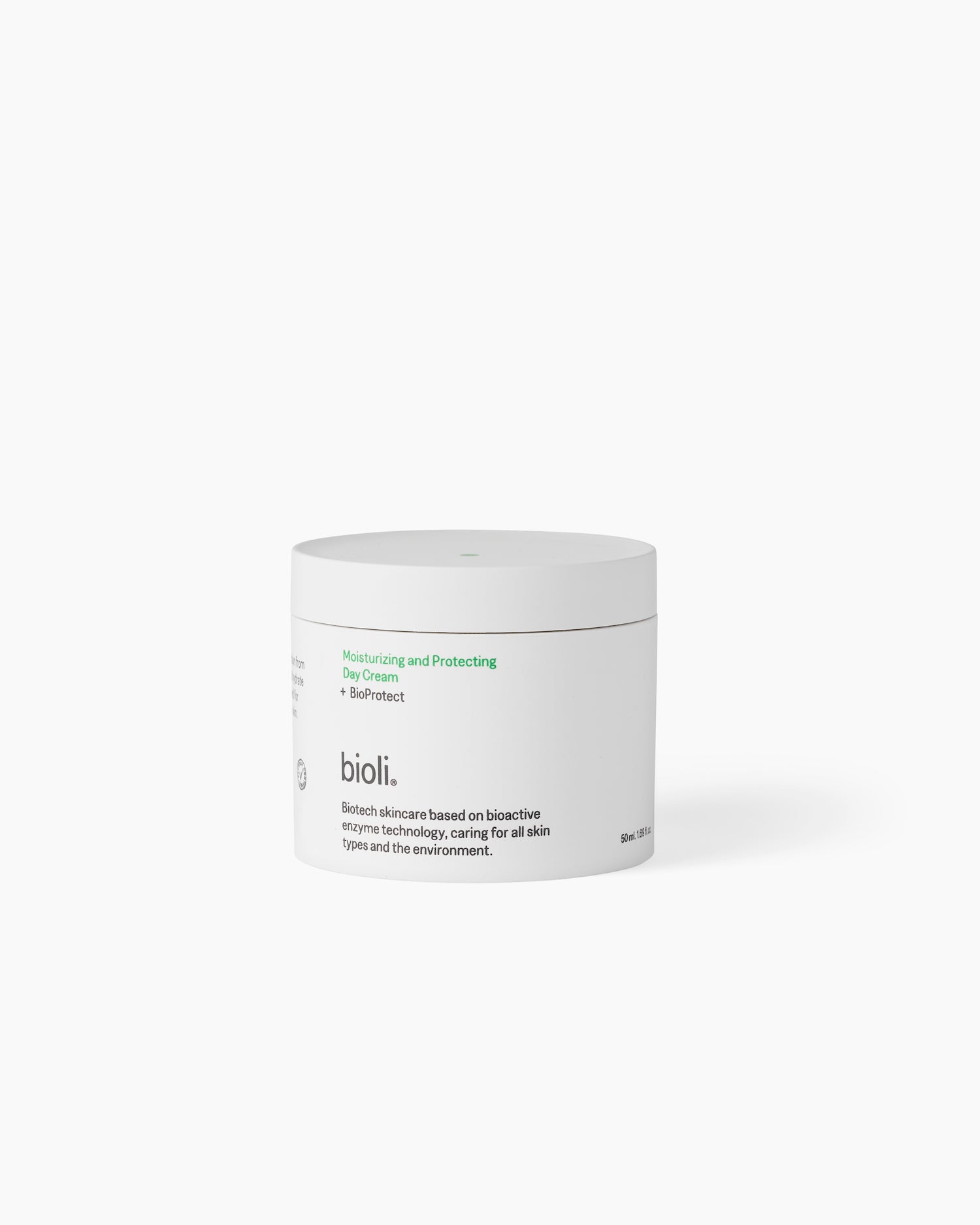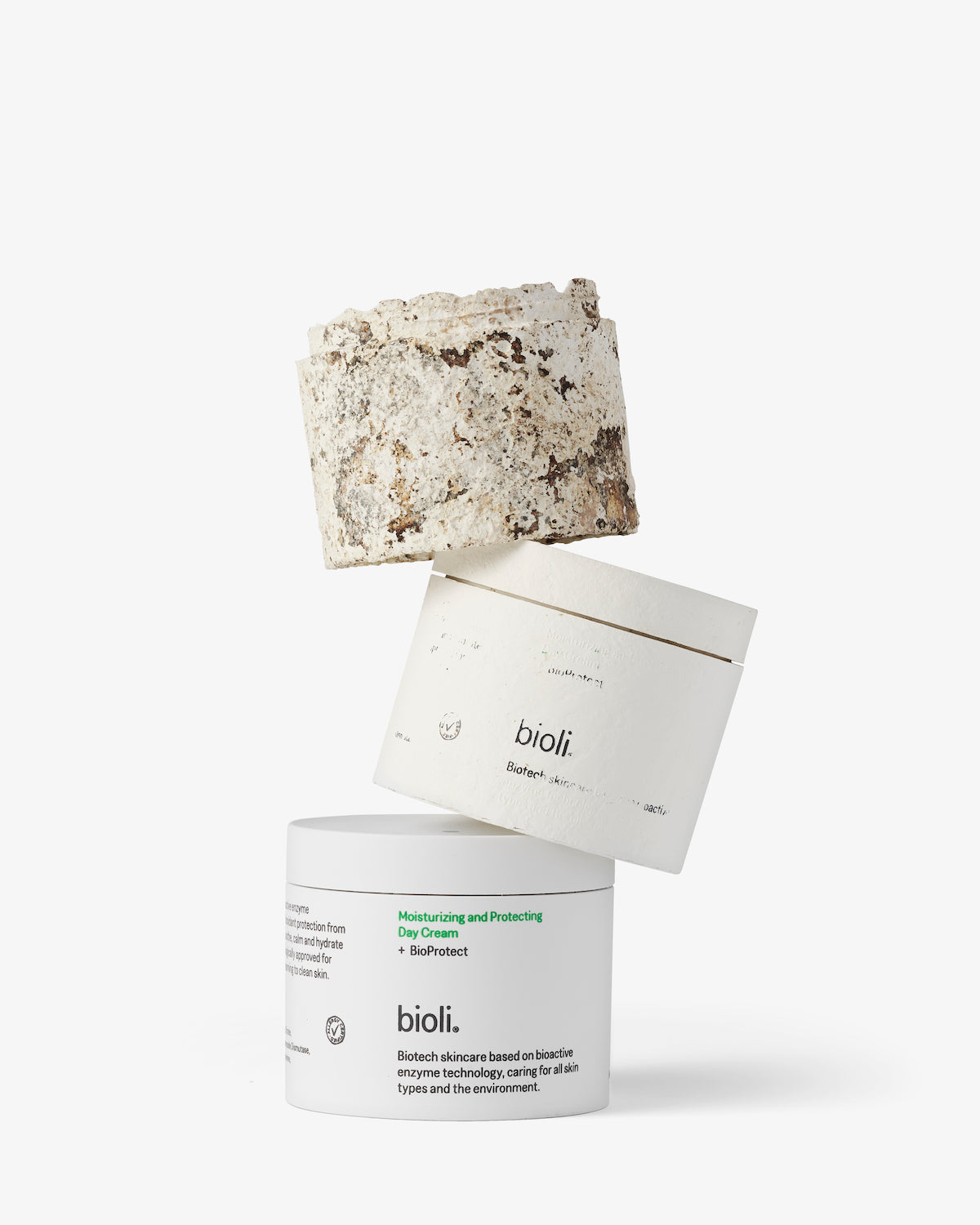2500 fragrance ingredients
Starting with the basics, there are more than 2500 fragrance ingredients. To ensure consumer safety, brands have to comply with The European Union (EU) Cosmetic Regulation, which sets standards for all ingredients, including perfume.
Under the regulation, some substances are restricted or prohibited due to health concerns. Ingredients that are common allergens, for instance, must be declared on the product's ingredient label if their concentration exceeds specified thresholds. This helps consumers with sensitive skin make informed choices.
25-30% increase in individuals with perfume allergies
Despite the acceptance of some substances in the regulations, they can still be very harmful. In the last 10-15 years, there has been a 25-30% increase in women and men with perfume allergies, says Jeanne Duus, Professor, Dr. Med., and Head of the National Allergy Research Centre, dep. Dermatology and allergy, Herlev and Gentofte Hospitals, in an interview with the Danish national TV-station DR.
The dangers of scented skincare products
The biggest risk of using scented skincare products is the development of perfume allergy. Perfume extracted from plants can be as allergenic as synthetic perfume developed in a lab, if not more so. Perfume allergies can be debilitating to your daily life, and once you have developed a perfume allergy, it becomes chronic. Perfume allergy can also lead to contact dermatitis.
Watch out for other scented products too
It's not only scented skincare products that can cause skin irritations. In the article International Prevalence of Fragrance Sensitivity, they explored adverse health effects of four types of exposure to fragranced products: air fresheners or deodorizers; scented laundry products coming from a dryer vent; being in a room after it has been cleaned with scented products; being near someone wearing a fragranced product - across four countries (US, UK, AU, SE) with 4435 people.
They found that among the general population in these countries, 32,2% report health problems when exposed to fragranced consumer products. 9% reported losing workdays or a job in the past year due to illness from from fragranced product exposure in the workplace. The personal estimated costs due to these lost workdays and jobs across the four countries in one year exceed $146 billion (USD).
Commonly reported health problems include respiratory difficulties, mucosal symptoms, migraine headaches, asthma attacks, and skin problems. Skin problems skin problems include rashes, hives, red skin, tingling skin and dermatitis.
Figure 1: Individuals affected with skin issues when exposed to four types of scented consumer products - based on Steinemann 2019
Common misperceptions
Now let's address some of the common arguments provided by manufacturers who sell scented skincare, which are misconceptions.
1. Natural scent is better
Perfume can be extracted from plants or developed in the lab. If developed in the lab, it's called synthetic perfume. Some argue that 'Natural' is better than a scent developed in the lab, but that's simply incorrect:
"The natural ones are just as allergenic as the identical substances that are made synthetically in a laboratory",
says Jeanne Duus, Professor, Dr. Med., and Head of 'Videncenter for Allergi' in Denmark.
2. Fragrance has positive attributes
Some argue that perfume has other positive attributes besides fragrance. But that's also a misconception.
"Perfume has no function in a cream at all except for the fragrance",
says Ewa Daniél, Toxicologist in an interview with the Danish national TV-station DR.
3. Essential oils are better than perfume
Some claim that essential oils are better than perfume regarding allergies but that is also a misconception. Essential oils can indeed be allergenic, similar to perfume. Essential oils are concentrated extracts derived from plants, and they contain various volatile compounds that can trigger allergic reactions, from mild skin irritation to serious allergic responses.
Only 26 ingredients need to be declared
Out of the 2500 fragrance ingredients, only 26 must be declared on the label, according to The European Union (EU) Cosmetic Regulation. Additionally, the proposed limit value of how much skincare manufacturers can include in their products is just a proposal and not part of the legislation. Therefore, manufacturers are free to add whatever they want as long as it's declared on the label. This leaves us consumers wondering: how can we protect themselves then?
In the interview, mentioned earlier, Jeanne Duus explains:
"The declaration cannot be used to project risk. It provides information about what's in the product but not how much. If consumers would like to safeguard themselves against allergies, they need to use skincare without perfume. That's the only option."
Furthermore, the risk of developing perfume allergy depends on how much the perfumery substances are exposed to oxygen.
"When the products are left on shelves in the sun for a long time or when the lid is opened, a chemical reaction occurs where new substances are created that are more allergenic than the original substance",
says Mette Sommerlund, Head doctor at Department of Clinical Medicine - The Department of Dermatology and Venereology, Aarhus University, in the same interview.
How to find out if there's perfume in my skincare?
So, how can you find out if there's fragrance in your skincare? It can be difficult, if not impossible, to detect from the label whether there's perfume or other fragrance in the products.
To find out, we recommend using one of the many ingredient analyzer apps. 'The Good Face Project' has written a great article that lists seven apps capable of checking the ingredients in your products.
Another helpful rule of thumb, learned from Søren Sneholt, CEO of Bionord A/S, one of the leading formulation and ingredients companies in the Nordics, is:
"If it smells, then there's fragrance in it. That's how it is".
Beware of Limonene and Geraniol
Limonene is a common ingredient found in skincare and cosmetic products due to its pleasant citrus fragrance and potential benefits for the skin. It is often derived from citrus fruits and their essential oils, where it occurs naturally. According to the Danish 'Kemiluppen', Limonene is added to every third cosmetic product in Denmark, for instance.
Limonene is not allergenic in itself, but the way the molecule can be transformed makes it a high allergy risk. Jeanne Duus explains:
"When exposed to oxygen, the chemical structure changes, and something called hydroperoxides occurs. Some of those can be highly allergenic."
Additionally, when Limonene is exposed to oxygen, it becomes oxidized. According to the 'National Allergy Research Centre', oxidized limonene is one of the most frequent causes of allergy in Europe.
In addition to Limonene, be cautious of Geraniol. Unlike Limonene, which is not allergenic by itself but becomes allergenic when exposed to oxygen, Geraniol is allergenic in itself.
Environmental impact
It's not just our skin that can suffer from scented products, but the environment as well. Let's examine two major environmental impacts of fragrance in skincare.
Water pollution
Air pollution
Learn more about the environmental impact of scented skincare and skincare in general in the article Spotlight on SDG's in skincare.
Making safer choices
So, how can we make better and safer choices for our skin and the plant? Here is some guidance.
1. Opt for 'fragrance-free' products
2. Read product labels
3. Patch test
4. Apply perfume to clothes
Apply perfume to your clothes instead of directly onto your skin.
While fragrance in skincare products can enhance our sensory experience, it also comes with potential risks to our skin and the environment. By choosing fragrance-free options, we can protect both our skin and the planet for a healthier and more sustainable future. Learn more on how to transition to a more sustainable skincare routine.
For information on prohibited substances in cosmetic products, you can read the latest version of the cosmetics regulation Annex II through this direct link.













